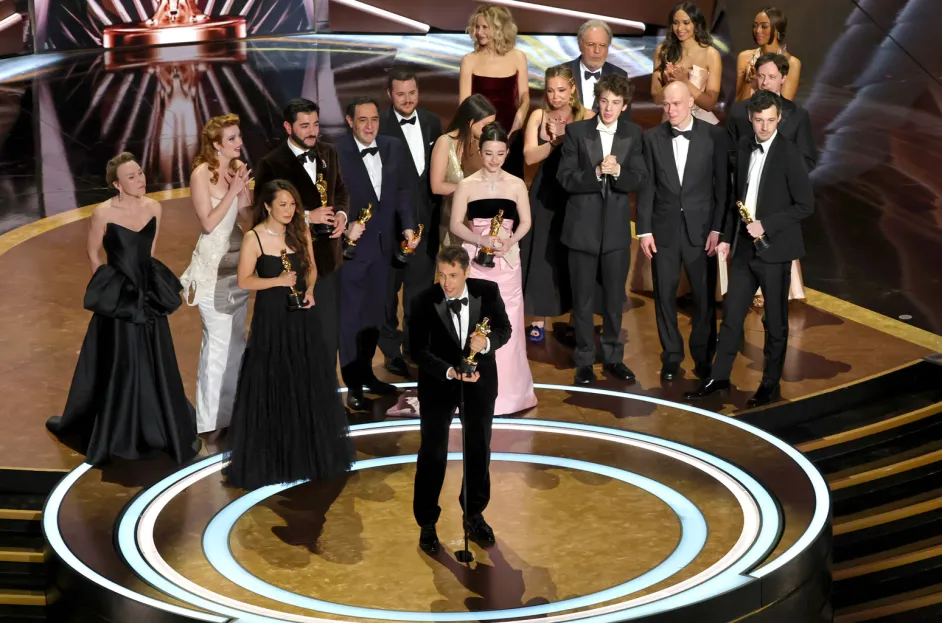For years, musical theater has had a huge impact on culture. It exposes society to those whose life’s goals are to entertain and many musical theater productions teach valuable lessons in the catchy form of songs. Broadway musicals have been popular since the 1940s, with the release of “Oklahoma!”. With the first movie musical being released in 1927, they slowly gained popularity until the overall craze of musical theater reached its peak in the 1950s. Around this time, musical movies began production. From Grease, to Gentlemen Prefer Blondes, to Cry-Baby, these films have always been marketed as musicals, and have always had a larger demographic of viewers.
Although recently, the content of musical films has been kept a secret in a way. With the 2023 releases of Wonka, The Color Purple, and Mean Girls, people have thought they were just remakes of the classics because those come out every few years. Yet many are shocked as they sit down with their popcorn and large carbonated drinks to find out that the movie is a musical.
The question is: why are we hiding the fact that musical movies are in fact musicals?
You’d think if you watched a trailer for one of these movies, the singing and dancing would give it away. With the Mean Girls trailer, we hear the score of “Meet The Plastics” from the Mean Girls musical on Broadway in the background. Though, if you aren’t an avid fan of musicals, like a good portion of the population, then you’d just think it was a part of the new movie’s soundtrack.
Similarly with Wonka, when I watched the trailer I thought it was just the backstory of the infamous Willy Wonka. It was laid out like the audience was just going along with the young version of him as he and his chocolate factory came to be. It wasn’t until I saw a post on social media from someone that was surprised in the theater, that I realized that it was a musical. Though all Willy Wonka and the Chocolate Factory adaptations tend to include music of some sort, this one wasn’t presented as such.
The Color Purple is a different story, as the first trailer didn’t, the more recent trailers include the cast dancing and singing. With singers like Halle Bailey and Ciara as some of the leads, it makes sense that it is a musical. Though it isn’t plastered on a poster, it is clear that this film is a musical adaptation. Those who didn’t research much find it surprising.
In the film-musical theater world, many movies are a hit-or-miss when it comes to the box office. Films like my favorite, La La Land, are masterpieces that have won multiple awards, including Oscars. With a budget of $30 million, the film had an overall profit of $472 million. Others like Cats, though it was a hit on broadway, did terribly. It contributed to the stigma that musicals make people cringe, or that they are bad. Cats grossed $45.7 million dollars worldwide (grossing $21.1 million in America), though there was a budget of $100 million dollars.
I believe that producers are worried about their films flopping, and they want to trick people into the theater, because the funds will come their way regardless if the people liked musicals at all. It has been successful in the box office, and though it is a good strategy business-wise, it is misleading. They try to cater to all audiences, and that is not necessarily a crime. At the same time, those who enjoy musicals might miss out on viewing them if they don’t even know they are musicals.
Truly, the fear stems from not being able to market musicals to certain audiences, like little boys when it comes to some Disney films. But I feel that production companies just need to be truthful. Instead of keeping musical trailers devoid of its selling point, music and dancing, maybe they should make the movies more interesting. Make your trailers and commercials a spectacle, something that’s hard to resist. Sometimes you may find an unexpected target audience. Because if you don’t bring in the audience that you want, the right audience is out there, waiting for you.









![McNamee, WM. (2014) "White House Press Briefing" [Photo]. Getty Images](https://lthsvanguard.com/wp-content/uploads/2025/03/170110-white-house-podium-getty-1160-1200x651.jpg)